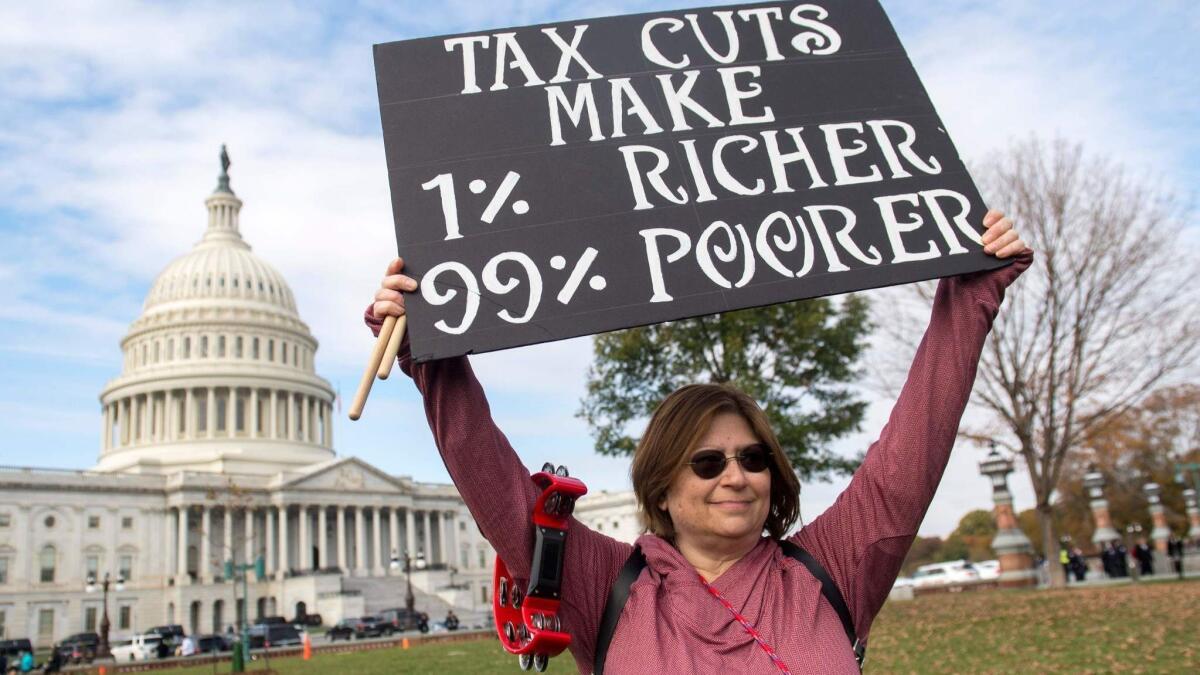California voters could be asked to impose an estate tax, replacing the one Trump loosened

- Share via
Reporting from Sacramento — California voters would consider a state-mandated tax on the assets of wealthy residents, one that could generate as much as $1 billion a year for low-income families, under legislation introduced in the state Legislature on Tuesday.
The bill would ask voters next year to impose an estate tax of a size equal to what was loosened in 2017 by President Trump and Republicans in Congress as part of a broad tax overhaul law. The goal, said the proposal’s author, is to create an overall tax burden for wealthy Californians equal to what existed before the federal tax break was created.
Under Senate Bill 378, the revenues from the tax would be earmarked for programs designed to combat income inequality.
“A California estate tax benefits low-income families by helping them build wealth and end the cycle of intergenerational poverty,” state Sen. Scott Wiener (D-San Francisco) said in a written statement.
Wiener floated a similar proposal just after Trump took the oath of office in early 2017. That effort came before the president and GOP congressional leaders pushed to loosen the federal estate tax — which now kicks in only on estates worth more than $11.4 million for individuals and $22.8 million for a married couple.
SB 378 envisions a California tax that applies to estates larger than $3.5 million for an individual, where the federal tax applied between 2009 and 2011. The tax break grew in 2011 and was expanded dramatically through action in 2017 by Trump. To avoid any instance of double taxation by the state and federal government, SB 378 stipulates the California version would phase out once the value of a deceased resident’s estate hits the federal threshold.
“It’s obscene that the federal estate tax exemption has escalated so dramatically,” Wiener said.
Sign up for the Essential Politics newsletter »
Wiener’s proposal sets aside the revenues from his estate tax for “programs and services that directly address and alleviate socioeconomic inequality,” according to a news release. It would include establishing savings accounts for children from low-income families. San Francisco created its own program for child savings accounts when Gov. Gavin Newsom was the city’s mayor.
The proposal, if passed by the Legislature and signed by Newsom later this year, would have to be ratified by voters in the November 2020 statewide election. A pair of 1982 ballot measures banned a state-level estate tax, which means any change would have to receive final approval on election day.
Follow @johnmyers on Twitter, sign up for our daily Essential Politics newsletter and listen to the weekly California Politics Podcast
More to Read
Get the L.A. Times Politics newsletter
Deeply reported insights into legislation, politics and policy from Sacramento, Washington and beyond. In your inbox twice per week.
You may occasionally receive promotional content from the Los Angeles Times.









